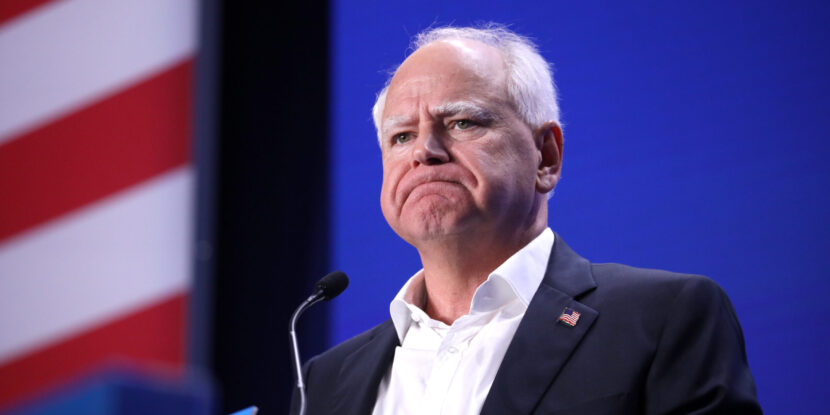❓WHAT HAPPENED: A video has surfaced showing a U.S. Immigration and Customs Enforcement (ICE) agent confronting agitators interfering with an operation to detain a suspected child sex offender in St. Paul, Minnesota.
👤WHO WAS INVOLVED: ICE agents, anti-ICE protesters, individuals filming the scene, and federal officials.
📍WHEN & WHERE: The weekend of January 17, 2026, in St. Paul, Minnesota, during a federal enforcement operation.
💬KEY QUOTE: “We’re here to arrest a child sex offender, and you guys are out here honking… That vehicle right there is honking and impeding our investigations while we’re trying to arrest a child sex offender. That’s who you guys are protecting. Insane.” – ICE agent
🎯IMPACT: Protests against ICE enforcement actions have intensified in Minnesota, with some demonstrators violently clashing with federal and local law enforcement.
A video posted to social media shows leftists attempting to interfere in a U.S. Immigration and Customs Enforcement (ICE) operation over the weekend in St. Paul, Minnesota, being warned that their actions could result in the escape of a child sex offender. Anti-ICE activists, according the federal immigration officer in the video, were honking car horns in effort to warn the enforcement action target.
“We’re here to arrest a child sex offender, and you guys are out here honking… That vehicle right there is honking and impeding our investigations while we’re trying to arrest a child sex offender. That’s who you guys are protecting. Insane,” the ICE agent states into the camera, while pointing to a vehicle he said was disrupting the operation. Another part of the footage captured continuous honking from a car.
“We are trying to arrest a child s*x offender” ICE agents say as activists honk to alert to their presence in St Paul Minnesota. pic.twitter.com/TmL3DlZZ8F
— Oliya Scootercaster 🛴 (@ScooterCasterNY) January 18, 2026
The confrontation follows heightened tensions between federal agents and anti-ICE agitators in Minnesota, sparked by two recent high-profile shootings. Earlier this month, an ICE agent fatally shot Renee Nicole Good, an anti-ICE activist, when she hit a federal officer with her car. Seperately, a Venezuelan illegal was shot in the leg by an ICE agent in Minneapolis after he and several others attacked the agent with a shovel.
Demonstrators have organized marches, vigils, and “ICE Watch” patrols to monitor federal enforcement actions. Meanwhile, the Department of Justice (DOJ) is investigating protesters who disrupted services at a St. Paul church where a local ICE official, David Easterwood, also serves as a pastor.
As some big accounts who reposted this seem confused – the agent clearly points with his finger behind him to specify who he is talking about, then addresses the journalist camera as his message to protesters pic.twitter.com/8j3rr4pGcb
— Oliya Scootercaster 🛴 (@ScooterCasterNY) January 19, 2026
Join Pulse+ to comment below, and receive exclusive e-mail analyses.









